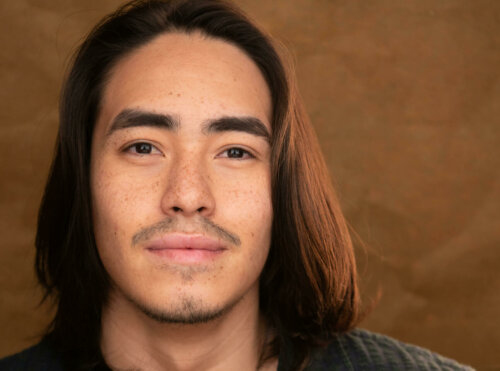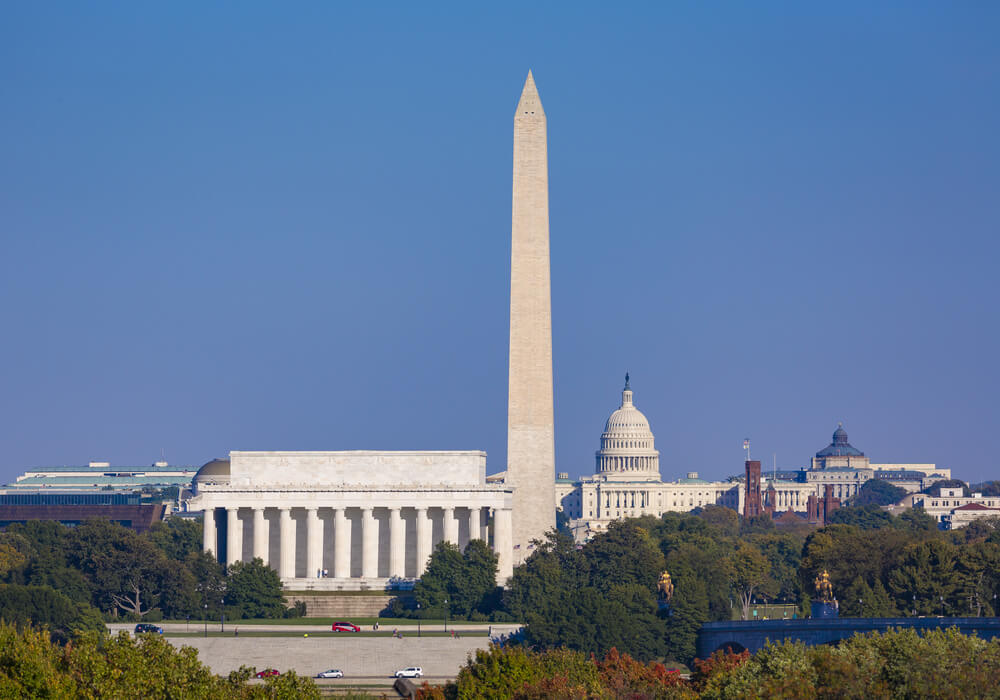How to Become an Actor in Washington, D.C.
Like so many actors before him, it was a performance of the musical Hairspray that changed everything for Iván Carlo. “I fell in love and was like, I’m doing this,” he recently recalled. He was in high school at the time, and a “very average” athlete but he immediately got the bug and began auditioning. Having grown up in suburban Maryland, Washington, D.C. had always felt like home—and for the last several years, it has been.
 Photo credit: Billy Bustamante, courtesy of Iván Carlo.
Photo credit: Billy Bustamante, courtesy of Iván Carlo.Carlo got his acting sea legs in D.C. primarily in the theater and industrial scenes, both of which are thriving markets there. It was during the pandemic that he made the shift to regular on-camera work, which in part accounts for why he plans to move to Los Angeles in a few months. But this is still an interview about how to become an actor in D.C.! And Carlo insists it is a great city to do just that.
First things first: Washington, D.C. is a theater town. But that doesn’t mean there aren’t other opportunities.
The theater scene out here is very special. It’s really established and it’s highly competitive: Signature Theatre, Arena, the Kennedy Center, and even the smaller nonunion theater houses, they all play a really important role in the acting scene here. Theater is definitely the most established market here. But the benefit of living here if you’re a TV actor is that you’re just a bus ride from New York City. It can be challenging, like if you’re called and told, “You need to get to New York by tonight for an early shoot tomorrow,” that can be hectic. But I’m young and hungry so I make it work! The film/TV community out here is not as established as the theater community here, but they are so intertwined.
D.C. is particularly great for those early, less financially fruitful years.
For the young professional who’s starting out, D.C. is cheaper than New York City. I’ve lived in the city and love it, but it’s so expensive. The city can also be challenging mentally, too, if you’re not the kind of person who likes to be extroverted all the time. Baltimore, which is only about 45 minutes from D.C. proper, also has a growing industry presence right now, especially for TV actors. There are a number of great casting directors there who are starting to pick up on their TV and film projects. D.C. also has tons of industrial projects, which is how I paid my way when I first got out of school.
D.C. can be a stepping stone. It can also be a place to return.
Full transparency: I am planning to move to Los Angeles in a few months, so I can have a more aggressive location for my career. And that’s just based off of the advice my reps have given me. But I like to think of the DMV (D.C., Maryland, Virginia region) as a whole as a place that I would like to come back to after having attained some success as an actor elsewhere. It’s a great place to serve as a stepping stone in either direction of your journey.
This is the first thing actors in D.C. should do when they arrive:
Go see shows. The ticket prices out here are incredibly inexpensive. See shows and afterwards, go introduce yourself to the actors and say, “That was a great show, I loved what you did in this moment.” Show some thoughtful feedback, generate a connection, and they’ll ask if you’re an actor. And they will remember you. There have been so many times where I have done this and added that I am looking to work more and without fail they say, “Oh, you should join this group,” or “you should go into this audition for nonunion actors next week.”
When starting out in D.C., start with local representation, too.
When I first started, I got a local to D.C. manager. She booked me from my last year in undergrad and pushed me into the on-camera industrial and print media market. Once I developed some materials with them, I started to go into bigger agencies in New York City. That’s how I met my agency who I have now, who have an office in New York but are more central to Los Angeles.
The D.C. standard can be kinder than those in bigger markets.
D.C. actors are lucky in the sense that certain standards of materials aren’t nearly as rigid as they are in, say, Los Angeles. I have heard that in Los Angeles, if your headshots don’t look a certain way, you’re not going to be considered, or if your reel isn’t formatted in a certain way or you don’t have these kinds of credits, you’re going to be put into a certain pool for work. In D.C., if you have your package together and you are somewhat polished, you are an incredibly valuable asset to the agencies that are out here, because the talent pool is so much smaller here.
You can start booking work in D.C. right now—even if you have no experience. Here’s how.
Put a package together. Have a few photos. If you have any experience on-camera, make a reel—and if you don’t, get a ring light and put your favorite monologue on tape. It doesn’t have to look fancy. The headshot scene out here is way cheaper than it is in New York. Be mindful that there are standard differences. I got my most recent headshots done in New York for that reason, but if you are starting out in D.C. there is no reason you can’t save money and do them here.
Wondering which D.C. neighborhood is best for actors? Start here.
The neighborhood actors should live in in D.C. solely depends on preference. If you’re a city kid and you want to be in the city proper, I live on H Street right now, which is a very political, city environment. The closer to the Capitol and to the monuments you are, the more entrenched you’re going to be in that. It’s very protest-heavy. Logan Circle is a great place to live, too. Outside of the city, if you’re looking for something a little more suburban, Chevy Chase, Bethesda, those areas both have high-end, young professional vibes that have a lot of great bars and restaurants and it’s also a little bit cheaper than the city proper. U Street is also great if you’re looking for an inclusive area where you can walk downstairs and go to four bars right outside your apartment.
If your path takes you away from D.C., you can always come home again.
D.C. is incredibly inclusive for the LGBTQIA community. It’s also very politically forward. And living here during the BLM marches, where I could go and hand out water bottles and be an active member of the community, is a privilege that is very unique to D.C. And you can take your time and find where you fit here, without as much competition as in New York or L.A. Don’t be deterred by the New York of it all. Yes, New York’s gravitational pull is strong and it can feel like whatever job you book, you’ll have to get to New York. But you can have a full life here and get great experience and if you ultimately decide to move on, you’ll always have this great community waiting for you.
This interview was conducted before the SAG-AFTRA strike.
Want to get the scoop on the latest casting calls in the nation’s Capitol? Check out our Washington, D.C. casting calls and auditions and land your next role today!
You may also like:
- A Quick Guide for Working During the SAG-AFTRA Strike
- Production Hubs Outside of Los Angeles and New York
- How to Become an Actor in New York




